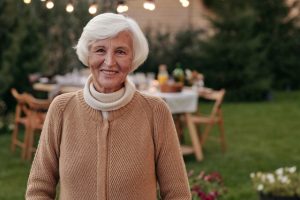Elderly people have better mental well-being living in a rural environment
 Elderly people who spend the last years of their life in a rural environment claim that they feel better and have fewer limitations in activities of daily living than those who live in cities. According to the recent study When I Retire, I’ll Move Out of the City’: Mental Well-being of the Elderly in Rural vs. Urban Settings by the Riskcenter and the UB School of Economics researcher, Manuela Alcañiz and the AQR researcher and professor at the Universitat de Barcelona, Maria Carme Riera i Prunera, elderly people living in rural areas have more social contacts and sleep more hours per day on average.
Elderly people who spend the last years of their life in a rural environment claim that they feel better and have fewer limitations in activities of daily living than those who live in cities. According to the recent study When I Retire, I’ll Move Out of the City’: Mental Well-being of the Elderly in Rural vs. Urban Settings by the Riskcenter and the UB School of Economics researcher, Manuela Alcañiz and the AQR researcher and professor at the Universitat de Barcelona, Maria Carme Riera i Prunera, elderly people living in rural areas have more social contacts and sleep more hours per day on average.
Co-authored by the researcher and professor at the University Pompeu Fabra, Aïda Solé-Auró, this article recently published in the scientific journal International Journal of Environmental Research and Public Health, focuses on how living in an urban environment affects people’s mental health. The authors used a score of current mental well-being using the Short Warwick-Edinburgh Mental Well-being Scale (SWEMWBS).
“Calculated by nationally representative survey data for Catalonia (Spain) from 2015 to 2017 to explain the mental well-being of the population aged 65 years and over, the results showed that the risk of having low levels of emotional well-being doubles in an urban environment compared to a rural environment. A risk that increases by 44% when the person lives in a semi-rural environment”, the authors added.
The results of the study suggest that the well-being of the elderly depend on two sociodemographic variables: age and gender. The risk of low emotional well-being is observed to be higher in women, while it worsens in both genders as the person gets older. “Controlling for gender and age, emotional well-being depends on other socio-demographic and economic factors. For example, living alone increases the risk of suffering low emotional well-being by 36%; having a low level of education increases it by 74%; and making ends meet with difficulty increases the risk to 69%”, the authors warn.
However, there is one variable that has a much greater impact than the previous ones on the emotional well-being of older people: social support. “An older person with a deficit of social support has an almost 4 times higher risk of suffering from low emotional well-being”, explained the researchers. Social support is defined by two dimensions according to the Duke index: social interactions (frequency of social contact) and subjective support (satisfaction with emotional support provided).
According to the authors, the survey data do not allow to determine why is there a greater decline in the well-being of the elderly living in urban areas. UB researchers, Manuela Alcañiz and Maria Carme Riera i Prunera, explain that according to other studies, “cities and densely populated areas tend to be associated with noise, agitation, stress and anxiety, so people living in them are more exposed to risk of poor mental health”. In contrast, “rural areas can be quiet and peaceful, which is why adults approaching retirement express a desire to move out of the city”.
In addition, Alcañiz and Riera have warned that other studies “emphasize the negative impact of living isolated in rural communities, and the stigma residents may be subject to when seeking help to treat their mental health problems, given that communities are small and social networks do not favour privacy”.
Recent news
- Four researchers of the UB School of Economics are listed in the 2% of the world’s most influential scientists
- The second edition of the UB School of Economics Young Researchers Meeting highlighted the excellence of the research done in the field of Economics at the UB
- How the adoption of robots has influenced global sourcing activities among Spanish manufacturing firms
- A Closer Look at the MSc in Economics Class of 2025
- Call for expressions of interest for Assistant Professor positions
- A recent UB study analyzes the environmental and economic impact of flight ticket taxes in Europe
- Would you like to join us for a coffee with researchers from the Faculty?
- UB School of Economics is recruiting two tenure-elegible lecturers
- Call for expressions of interest: PhD Fellowships in Economics

Sorry, the comment form is closed at this time.